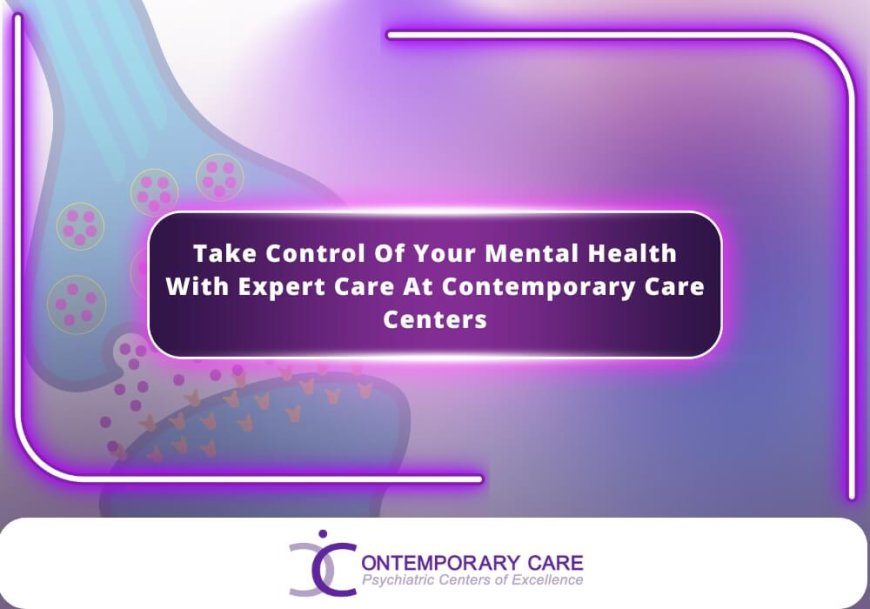The Future of Mental Health: Advancements in TMS Therapy
Explore the future of mental health with advancements in TMS Therapy. Learn about its effectiveness, technological innovations, and how it shapes the landscape of mental health treatment.

In recent years, the conversation around mental health has shifted significantly, emphasizing the need for innovative treatments that can provide relief for individuals struggling with various mental health disorders. One such advancement that has garnered attention is TMS Therapy (Transcranial Magnetic Stimulation). This non-invasive procedure has shown promising results for treating depression, anxiety, PTSD, and other mental health conditions. As we look to the future, it’s essential to explore the advancements in TMS Therapy, its effectiveness, and how it may shape mental health treatment moving forward.
Understanding TMS Therapy
What is TMS Therapy?
TMS Therapy is a non-invasive procedure that uses magnetic fields to stimulate nerve cells in the brain. It is primarily used to treat depression, particularly in patients who have not responded well to traditional treatments such as medication and psychotherapy. The therapy involves placing a magnetic coil on the patient’s scalp, which delivers targeted magnetic pulses to specific areas of the brain associated with mood regulation.
How Does TMS Therapy Work?
The underlying principle of TMS Therapy is based on the idea that stimulating specific regions of the brain can alter neuronal activity. By activating areas of the brain that are underactive in individuals with depression, TMS Therapy may help alleviate symptoms. The procedure typically lasts about 30 to 40 minutes per session and is conducted over several weeks, with patients often experiencing improvements in their mood and overall mental well-being.
The Rise of TMS Therapy
Historical Context
TMS Therapy was first developed in the late 1980s and gained FDA approval for the treatment of depression in 2008. Since then, its acceptance in the medical community has grown, leading to increased research and clinical trials. As mental health awareness has risen, so has the demand for effective treatment options like TMS Therapy.
Current Applications
Currently, TMS Therapy is primarily used for treating major depressive disorder (MDD). However, research has expanded its potential applications to other mental health conditions, including:
- Anxiety Disorders: Studies suggest that TMS Therapy may help reduce symptoms of anxiety by modulating brain activity.
- Post-Traumatic Stress Disorder (PTSD): Preliminary research indicates that TMS Therapy could help patients with PTSD by targeting the areas of the brain associated with trauma processing.
- Obsessive-Compulsive Disorder (OCD): Emerging studies show promise in using TMS Therapy as an adjunctive treatment for OCD.
- Chronic Pain Management: Some studies suggest that TMS Therapy can alleviate chronic pain symptoms, which often co-occur with mental health disorders.
Advancements in TMS Therapy
Technological Innovations
The landscape of TMS Therapy is evolving, with technological advancements enhancing its effectiveness and accessibility. Some notable innovations include:
- Smart TMS Devices: Newer devices equipped with artificial intelligence (AI) can personalize treatment by analyzing a patient's unique brain patterns and adjusting the magnetic field accordingly.
- Deep TMS: This variation of traditional TMS Therapy uses a different coil design that allows for deeper penetration into the brain, potentially leading to more significant therapeutic effects.
- Theta Burst Stimulation (TBS): TBS is a faster form of TMS Therapy that delivers stimulation in short bursts. Studies suggest that it may be just as effective as traditional methods but requires fewer sessions.
Research and Clinical Trials
Ongoing research is critical to the advancement of TMS Therapy. Clinical trials are continuously exploring its efficacy across various populations and mental health conditions. Some key areas of research include:
- Long-term Effects: Investigating the long-term benefits and sustainability of TMS Therapy results.
- Combination Therapies: Studying the effects of combining TMS Therapy with other treatment modalities, such as medication or psychotherapy, for enhanced outcomes.
- Neurobiological Mechanisms: Understanding the precise neurobiological changes that occur in the brain during and after TMS Therapy to improve treatment protocols.
Accessibility and Affordability
As awareness of TMS Therapy grows, efforts are being made to increase its accessibility. Insurance coverage has expanded in recent years, making it more affordable for patients. Additionally, clinics are emerging worldwide, providing more options for individuals seeking this innovative treatment.
The Future of TMS Therapy
Personalized Mental Health Care
One of the most exciting prospects for the future of TMS Therapy is the move towards personalized mental health care. With advancements in technology and a deeper understanding of individual brain patterns, clinicians may soon be able to tailor TMS Therapy to each patient's unique needs, enhancing treatment efficacy.
Integration with Digital Health
The integration of TMS Therapy with digital health tools could revolutionize mental health treatment. Applications and wearable devices could track patient progress in real time, providing data that can inform treatment adjustments and improve outcomes.
Broader Acceptance in Mental Health Care
As more research validates the effectiveness of TMS Therapy, it is likely to become a standard treatment option in mental health care. This acceptance may lead to increased training for mental health professionals, ensuring they are equipped to offer TMS Therapy as part of a comprehensive treatment plan.
Addressing Stigma
The future of TMS Therapy also hinges on addressing the stigma surrounding mental health treatment. As society becomes more open to discussing mental health issues, treatments like TMS Therapy may gain broader acceptance and understanding.
Conclusion
The advancements in TMS Therapy mark a significant step forward in the treatment of mental health disorders. With its non-invasive nature, promising efficacy, and continued research, TMS Therapy is poised to play a crucial role in the future of mental health care. As we move forward, it is imperative to continue exploring its potential, improving accessibility, and integrating it into a holistic approach to mental well-being.

 kanjum
kanjum